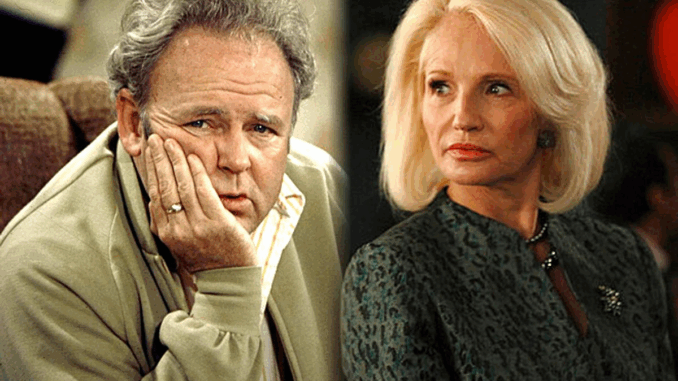
The return of Archie Bunker
But while Bunker, portrayed by Carroll O’Connor, has become a more familiar sight on Facebook these past few years, the initial conservative reaction to and appropriation of Bunker on behalf of a “silent majority” remains largely forgotten in the annals of television history. “Archie for President” bumper stickers, T-Shirts, and buttons were made following the show’s premiere on behalf of a fictional character who spoke to the anxieties of countless working- and middle-class families across the country – anxieties more recently embodied in the figure of a real-life President, Donald J. Trump.
All in the Family” both confronted and contributed to our polarized moment by placing a bigot in front of America in the name of satire. Many laughed at Archie, the show’s larger didactic aspiration. But many also laughed with him. This historical tension demands greater attention in our own moment, especially when we see its echoes playing out in contemporary politics.

These resonances between then and now are apparently evident to the show’s creator as well. On a recent episode of his late night television show, host Jimmy Kimmel announced that he and “All in the Family” creator Norman Lear would be working together in producing a live television special that would reimagine episodes of both “All in the Family” and “The Jeffersons,” the latter being one of Lear’s more successful spin-offs (All in the Family had a total of five). A star-studded lineup awaits the show’s viewers including Will Ferrell, Jamie Foxx, and Wanda Sykes.For the special’s producers, including Lear, the production is less about the show itself, and more about the fact that socially relevant programming can still be made today – even on network television. “They have said over and over again that these two shows were meant for the ’70s and would not work today,” Lear observed. “We disagree with them and are here to prove, with two great casts depicting “All in the Family” and “The Jeffersons,” the timelessness of human nature.”As of late, such programming has largely migrated to premium channels and streaming services, but back when “All in the Family” reigned supreme, sitcoms including the likes of “The Mary Tyler Moore Show” and “M*A*S*H” made contemporaneous events part of their weekly plots. As such, both the women’s movement and anti-Vietnam movement received free publicity packaged as political critique in prime time.
n short, the two shows’ reappearance on network television speaks to the value that Lear himself finds in situational comedy, and the various contributions he’s made to American television history. In fact, he takes great pride in his ability to speak to, and program in, the drama that is the human condition. For literary critic Geoffrey Wolfe, “It was just this power to shift from tears to laughter, and mean it, that tapped into that huge, unprecedented audience.” In essence, if you weren’t crying or laughing, than you weren’t truly living.
Unlike those who identified with Bunker, Lear and company have brought the show back, Bunker and all (played by actor Woody Harrelson), to remind us that television does not simply have to be a series of flashing colors and complex circuitry. Television can also have a didactic purpose – one that seeks to educate as much as it wants to entertain. For Lear, it has always been the duty of television to not only make people laugh, but also to report on the times in which it finds itself. The question for us to consider collectively is whether we are ready to acknowledge the complex racial legacy of “All in the Family,” and the role that such a legacy continues to play in our contemporary politics.
